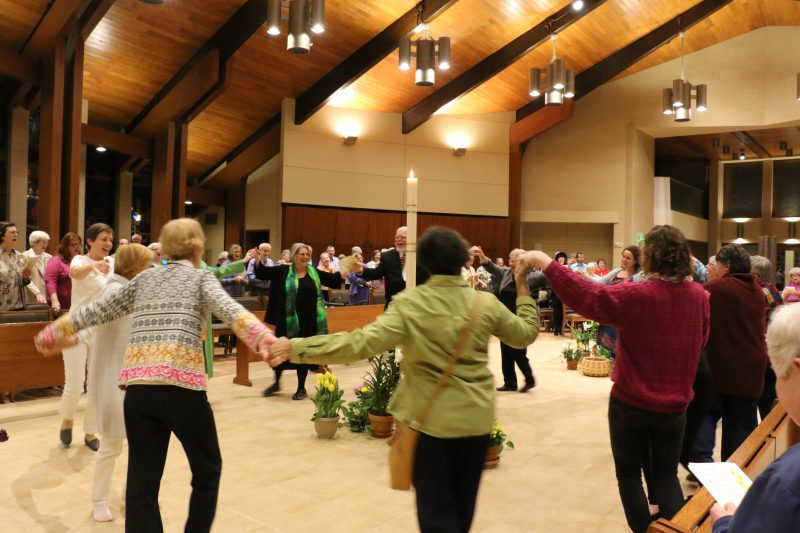
Vice President Kamala Harris on Tuesday announced a plan for Medicare to cover long-term care services at home, a significant expansion of the program that would be aimed at helping tens of millions of Americans who are caring for aging parents.
Harris’s announcement was designed to address the growing number of elderly Americans with serious medical needs who hope to stay in their own homes, as well as the children and other relatives who tend to them with little financial help.
The problem has grown increasingly acute in recent years as the baby-boomer generation ages, studies suggest. Medicare offers coverage for at-home services only under narrow circumstances and on a short-term basis, and most private insurance plans do not cover long-term at-home care.
That leaves many Americans placing their elderly parents in nursing homes, which can cost thousands of dollars a year, if not more.
Harris, in an appearance on ABC’s “The View,” a daytime show hosted by a panel of women, said she wanted to help the “sandwich generation” in particular — people who are caring for their children and aging parents at the same time. She said the issue resonated for her because she cared for her mother while she was dying of cancer.
“It is a personal experience for me, as well as something I care deeply about,” Harris said. “There are so many people in our country who are right in the middle. They’re taking care of their kids and they’re taking care of their aging parents. And it’s just almost impossible to do it all, especially if they work.”
The proposal, however, would face serious challenges in becoming law, since many Republicans would probably oppose such a costly expansion of Medicare. But it could prove popular with elderly and working-class voters, and is part of a suite of proposals Harris has offered aimed at families’ economic needs, from medical debt relief to a cap on prescription drugs to a $6,000 child tax credit.
As Americans are living longer but often with challenging medical conditions, millions of Americans who must care for elderly parents have few options to help cover the sometimes exorbitant cost.
Medicaid offers a long-term care benefit, but only those with lower incomes qualify for that government-run health program. The majority of elderly Americans are on Medicare, which provides few, if any, options for long-term at-home care.
Under Harris’s plan, Medicare would cover services such as in-home aides so seniors could stay in their homes rather than move to nursing homes or long-term care facilities. One goal, Harris said, is to make it easier for caregivers to continue working, as taking care of aging parents with growing limitations can become all-consuming. Elderly adults often need help with basic day-to-day functions such as eating and showering and may need other services, such as speech or physical therapy, experts say.
“People are of declining skills to some extent, but their dignity and their pride has not declined,” Harris said. “They want to stay in their home. They don’t want to go somewhere else. Plus, for the family to send them to a residential care facility, to hire somebody, is so expensive.”
The Department of Health and Human Services last year projected that more than half of those turning 65 will in the future need some kind of long-term service. The vast majority of Americans who do not use Medicaid as their primary health insurance or qualify for another relevant government program must foot all or most of the bill themselves, which often means draining their savings.
But such a program would be enormously expensive, and the Harris campaign did not offer an estimate for how much it would cost. The Brookings Institution recently estimated that a Medicare home benefit would cost the federal government about $40 billion a year.
Harris said the program would be paid for using the savings from allowing Medicare to negotiate drug prices. Under President Joe Biden, Congress passed legislation with only Democratic votes that allowed Medicare to negotiate the price of a small number of drugs; Harris said she would expand that program and use the savings to offset the cost of the Medicare home-care benefit.
This is not the first time a political leader has proposed a way to grapple with the sometimes overwhelming costs of long-term care.
The 2010 Affordable Care Act initially included an optional long-term insurance plan covering such costs as home-care aides, accessible transportation and home modifications. But it was dismissed in October 2011 after actuaries at HHS couldn’t figure out a way to make the program financially viable.
Biden, in his first year in office, proposed a $400 billion investment in home- and community-based care for the elderly and disabled through Medicaid. The plan came as the coronavirus pandemic had swept through nursing homes, killing tens of thousands of people and sparking fresh demands for the government to put more dollars toward giving people the option to stay out of institutional settings.
That plan failed to pass.
Rachel Roubein contributed to this report.












